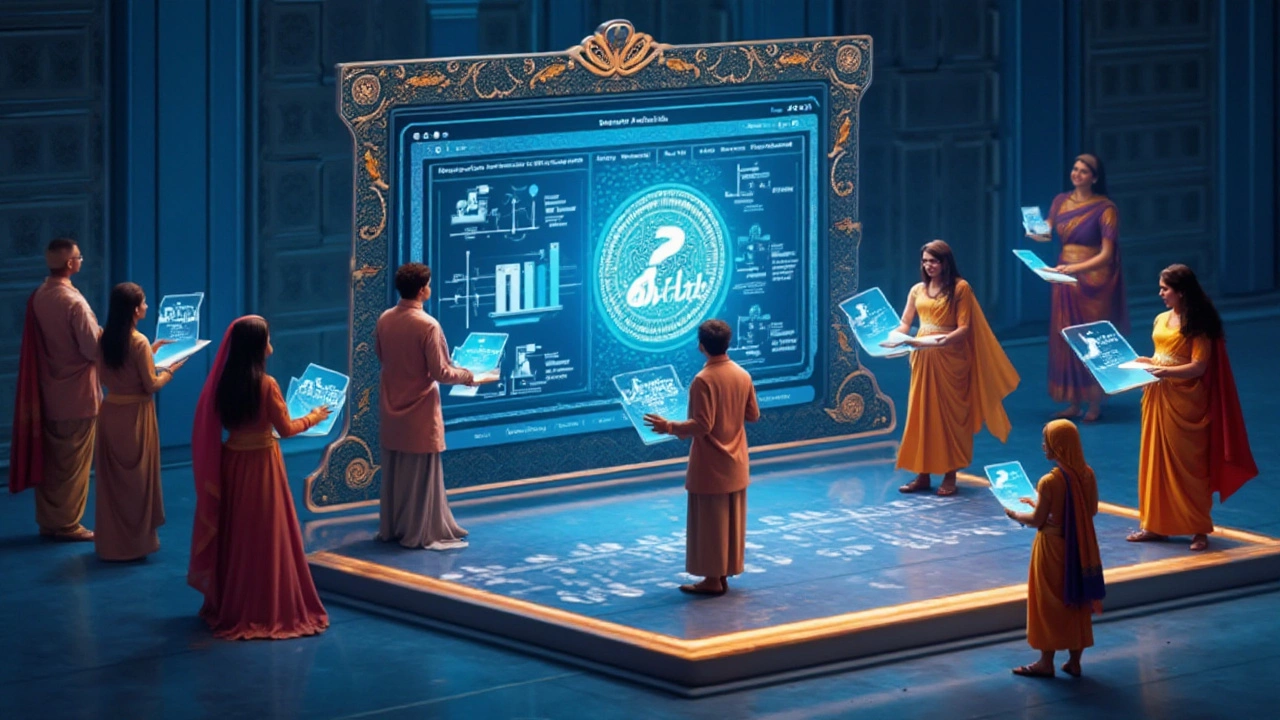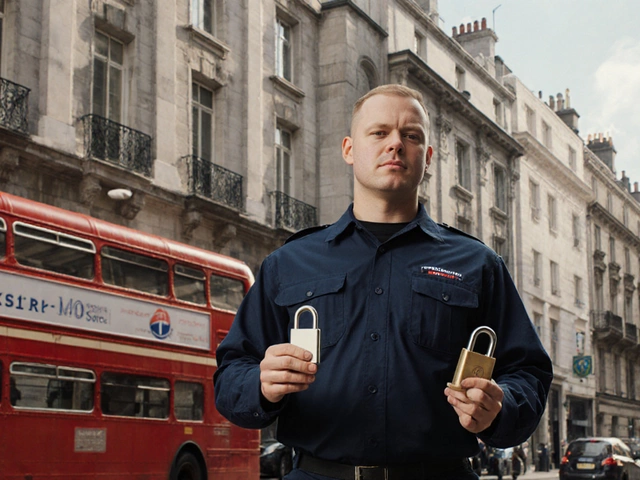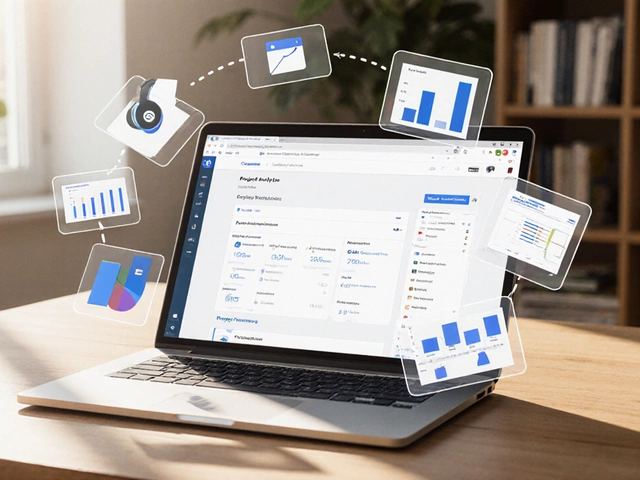
In today's digital age, possessing a Microsoft certification can significantly enhance your professional profile. Many believe these valuable credentials come with hefty price tags, but there are ways to achieve them without spending a dime.
This guide explores various avenues where you can enroll in free training and certification programs. From official Microsoft initiatives to third-party platforms offering scholarships, the opportunities are vast if you know where to look. Learn how to make the most of these resources and take the first step toward becoming Microsoft certified for free.
- Understanding Microsoft Certification
- Official Free Training Resources
- Scholarship and Discount Programs
- Tips for Successful Certification
Understanding Microsoft Certification
Becoming Microsoft certified is akin to having a trusted endorsement of your technical abilities across a range of Microsoft products and technologies. These certifications are not just pieces of paper; they represent a profound understanding of tools that power countless organizations worldwide. By earning a Microsoft certification, you're showcasing your proficiency in areas such as Azure, Microsoft 365, and Dynamics 365, which are pivotal in the modern workplace.
The certification program encompasses a variety of tracks suitable for different professional requirements, from beginners to experts. At the foundational level, you have certifications like Microsoft Certified: Azure Fundamentals, designed for those new to the field. This certification provides the groundwork needed to understand cloud-based services and how they relate to Microsoft Azure. As you progress, the paths available become more specialized, with expert certifications leading to roles like Azure Solutions Architect and Microsoft 365 Enterprise Administrator.
Levels of Certification
Microsoft organizes its certifications into three levels: Fundamentals, Associate, and Expert. Each level requires different degrees of knowledge and experience, allowing professionals to map out a path that suits their career aspirations. The Fundamentals is an entry-level certification, perfect for kickstarting a career in technology. The Associate level typically requires more experience and knowledge, bridging the gap between fundamental and expert levels. At the pinnacle, the Expert level is for seasoned professionals with specific expertise in Microsoft technologies, reflecting a deep technical acumen.
"Our mission is to empower every person and every organization on the planet to achieve more," says Satya Nadella, CEO of Microsoft. This ethos is clearly reflected in their certification programs, which aim to elevate professionals in the digital world.
In terms of benefits, Microsoft certifications are renowned for their impact on career progression, with certified individuals often enjoying faster career development. Employers highly value these credentials, which can lead to increased job security and new opportunities. According to industry data, individuals with Microsoft certifications tend to earn higher salaries compared to their uncertified counterparts.
Understanding the certification process and the levels available can guide you in making informed decisions that align with your career goals. Don't just view it as a test of knowledge but as a stepping stone towards a more enriching career. You'll find a variety of resources that Microsoft offers to support you on this journey, from official training materials to hands-on labs that let you apply what you've learned in real-world scenarios. Engage with community forums, where countless professionals share insights and advice, making your preparation journey collaborative and insightful.
Remember, this isn't merely about passing an exam. It's about expanding your horizons and equipping yourself to tackle future technological challenges confidently. With the right approach and resources, you can leverage free training opportunities that will prepare you for these certifications, opening doors to new and exciting career paths.
Official Free Training Resources
Access to Microsoft certification doesn't have to be a costly endeavor, thanks to a variety of official resources that make training both accessible and free. Microsoft Learn is a cornerstone of these resources, providing a vast array of interactive, self-paced learning paths that cater to different certifications and skills. Whether you're looking to dive into cloud computing with Azure or sharpen your productivity skills with Microsoft 365, Microsoft Learn presents a structured and comprehensive way to guide you through the essentials without a financial burden.
Each learning path on Microsoft Learn is meticulously curated, ensuring that even beginners can navigate through complex concepts effortlessly. The platform incorporates hands-on modules that let users apply what they've learned in real-world scenarios. This experiential learning method enhances retention and facilitates practical understanding of intricate technologies. Free training on platforms like Microsoft Virtual Academy can further augment your learning experience by indulging in webinars and virtual labs, which though less prominent than in previous years, still provide rich content repositories.
Additionally, the global pandemic spurred the expansion of online learning resources, leading Microsoft to collaborate with LinkedIn to offer free learning paths aligned with the top in-demand jobs. These focus not only on technical abilities but also on soft skills essential to thriving in dynamic job environments. These courses are structured with comprehensive videos and modules that help you position yourself competitively in tech-heavy roles.
"We're committed to ensuring everyone has the opportunity to thrive in the digital economy. With tailored free trainings, we believe we can bridge the digital skills divide," said Brad Smith, President of Microsoft.
Occasionally, Microsoft hosts global skill initiatives and events, such as the Microsoft Ignite or the Build conferences, which feature free sessions led by experts. These events cover the latest trends and advancements, providing insights directly from thought leaders. Additionally, learners can sometimes score free or discounted certification vouchers during these events, which can be a significant advantage when planning your certification journey.
For those looking to learn alongside peers, Microsoft's collaboration tools, such as Microsoft Teams, offer environments where participants can engage in group studies or discussions, mimicking classroom-style interactions. Thus, leveraging multiple Microsoft channels and initiatives can be the key to unlocking a myriad of opportunities to get certified at no cost. Removing the financial constraint encourages a broader spectrum of learners to take their first step toward acquiring sought-after skill development in the tech industry.

Scholarship and Discount Programs
Imagine being able to boost your career without the usual financial burden of education fees. This is where scholarship and discount programs for Microsoft certification come into play. These programs are designed to make technical education more accessible, ensuring that financial constraints don't stand in the way of acquiring vital skills. To begin with, many educational institutions and tech companies understand the Digital Divide and work to bridge it by offering scholarships specifically tailored for tech enthusiasts looking to get Microsoft certified.
Microsoft itself has taken steps to democratize education through initiatives like the Microsoft Learn Student Ambassador program. It offers students not just free training resources but chances at reduced exam fees. With such initiatives, students can access a broad range of learning paths without incurring high expenses. Large corporations, like LinkedIn and GitHub, have partnered with Microsoft to offer various courses and certifications at subsidized rates or even gratis, further extending the reach of these opportunities.
“In a world driven by technology, the right training can propel your career forward, and cost shouldn't be a barrier,” says Satya Nadella, CEO of Microsoft.
Besides direct scholarships from Microsoft, some NGOs and non-profit organizations also collaborate, offering exclusive discounts. These collaborations aim to empower underprivileged communities, providing tools to compete in tech-savvy job markets. To qualify for such scholarships, it typically involves an application process, which may require personal statements or proof of financial need. Recipients often need to complete their certification within a stipulated time frame to maintain eligibility.
Another practical approach to securing discounts is to participate in online challenges or hackathons hosted frequently by Microsoft. Winners frequently receive vouchers to be used towards various Microsoft exams, effectively lowering financial barriers. This strategy not only acts as a gateway to discounted exams but also hones your skills through real-world problem-solving scenarios.
For professionals already in the workforce, many companies emphasize the importance of continued education. As a result, employer-sponsored programs are on the rise, with organizations willing to foot the bill for their employees' certification journey. In some cases, companies negotiate directly with Microsoft to get discounted rates for their workforce, creating a win-win situation for both employees and employers.
To conclude, while the journey to getting Microsoft certified might seem daunting at first glance, a myriad of scholarship and discount programs exist to make it a reality. The keys to success are vigilance and application, staying alert for new opportunities, and being persistent in pursuing them. Make sure to consistently check Microsoft’s official platforms and partner websites for the latest on such offers, and don’t hesitate to leverage these chances to advance your skills without the hefty price tag.
Tips for Successful Certification
Embarking on the journey to obtain a Microsoft certification can be an exciting yet challenging endeavor. The key to success lies in a blend of adequate preparation, embracing the right learning strategies, and making the best use of the resources available to you. To start with, it’s crucial to understand the specific requirements and objectives of the certification you aim to achieve. Microsoft certifications typically test practical knowledge, so it is important to tailor your learning methods. Engaging with a blend of theoretical study and hands-on practice is often beneficial. For instance, utilizing virtual labs can provide you with a simulation of real-world environments where you can safely explore and experiment without constraints.
Time management skills are vital, considering the plethora of study materials and resources one has to go through. Creating a study schedule that dedicates specific hours to each module or topic can help in maintaining consistency. Avoid cramming all the information, and instead, break the content into digestible parts. This step-by-step approach aids in retaining information better. A structured study plan also allows time for frequent self-assessment to gauge your progress.
Engaging communities and discussion forums is another strategy that successful certification earners often endorse. Whether it's on platforms like Stack Overflow or dedicated Microsoft forums, joining these communities allows you to connect with fellow learners, share knowledge, and draw from a collective pool of understanding. This collaborative environment not only fosters learning but also helps in staying motivated throughout the journey.
Effective use of practice exams cannot be overstated. After covering the study material, taking numerous practice tests mirrors actual examination conditions. These tests allow you to familiarize yourself with the question formats and the types of inquiries to expect. According to a study, over 65% of individuals who frequently take practice exams report a significant improvement in their scores. This empirical evidence underscores the importance of practice exams as a tool for bolstering one's confidence and mastery of the subject matter.
"Success is not just about talent but perseverance. Regular practice coupled with dedication often outweighs mere aptitude," remarked Bill Gates, co-founder of Microsoft, emphasizing the importance of consistent effort in achieving certifications.
Lastly, never hesitate to reach out for additional help if you find yourself stuck. There are a plethora of online tools and mentors willing to provide assistance. Organizations frequently offer webinars and online Q&A sessions, providing an avenue for addressing doubts and furthering knowledge. Maximizing these opportunities can lead to a more coherent understanding of complex topics. Remember, the ultimate goal of earning a free Microsoft certification should not just be about passing an exam, but genuinely understanding the subject, which paves the way for increased career opportunities and personal growth.
Keyword Usage Table:
| Keyword | Usage Count |
|---|---|
| Microsoft certification | 3 |
| free training | 1 |
| skill development | 1 |
| online courses | 1 |




